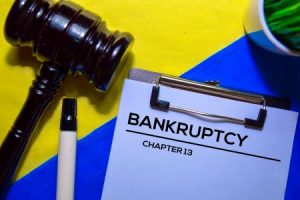What Happens When I File Chapter 13 In Illinois?

In a word, or actually in three words, people who file Chapter 13 get a fresh start, both financially and emotionally. Financially, Chapter 13 gives families the tools they need to eliminate debt on their terms. A zero past-due account balance is the essence of a fresh financial start. Emotionally, bankruptcy relieves the significant financial stress many distressed debtors feel. Frequently, this stress causes symptoms similar to Post Traumatic Stress Disorder and make it almost impossible to function.
Chapter 13 is an investment of both time and resources. A Chicago bankruptcy lawyer ensures maximum return on this investment. Lawyers do more than fill out forms. Attorneys evaluate your case and give you solid legal advice about your options. This advice continues all the way through the complex bankruptcy process. Finally, in the event that things go sideways, an attorney can effectively advocate for you with the trustee (person who oversees a bankruptcy for a judge) and in court.
Qualifying for Chapter 13
Almost all debtors meet the formal and informal qualifications for filing a Chapter 13 bankruptcy in Illinois.
The formal qualifications, which are set in federal law, include a debt ceiling and an education requirement.
Chapter 13 debtors cannot owe more than $1.3 million in secured debt, like mortgage debt, and $300,000 in unsecured debt, like credit card debt. These figures include both current and past due obligations. Additionally, all bankruptcy filers must complete a debt counseling class before filing and a budgeting class sometime before the judge closes the case. These brief, inexpensive courses are usually available online.
Chapter 13’s informal qualifications are no less important. However, they are not written anywhere and vary in different jurisdictions.
The monthly income-expense balance is probably the biggest one. As outlined below, all Chapter 13 debtors must make a monthly debt consolidation payment. Therefore, they must have a large enough monthly surplus to make this payment. Since Chapter 13 debtors usually don’t make separate payments on unsecured debt, this requirement is usually not a problem.
The Automatic Stay
As soon as debtors file their voluntary petitions, Section 362 of the Bankruptcy Code kicks in. This provision of federal law prohibits adverse creditor actions, such as:
- Wage garnishment,
- Foreclosure,
- Debt collection lawsuits,
- Repossession, and
- Creditor harassment.
In fact, the Automatic Stay technically prohibits communication between debtors and creditors. So, the protection is incredibly broad. Creditors may only bypass Section 362 in limited situations.
This provision remains in effect until the judge closes the bankruptcy. That period of time is usually five years in a Chapter 13.
Debt Repayment and Discharge
About six weeks after filing, debtors meet with trustees to set up the aforementioned debt consolidation payment and address a few other housekeeping matters. This meeting is usually a formality. A Chicago bankruptcy lawyer can predict the Chapter 13 payment amount based on allowed claims. “Allowed claims” are mostly delinquent secured debts. Additionally, an attorney knows what to anticipate in terms of document requests, like recent tax returns.
As long as repayment plans meet minimum obligations, most judges approve them without requiring hearings. Since the Automatic Stay remains in place, creditors cannot pressure debtors to pay more money or pay it faster. At the end of the case, the judge discharges (forgives) any remaining unsecured debt.
Reach Out to Savvy Cook County Lawyers
No matter what kind of financial problem you are having, bankruptcy could be a way out. For a free consultation with an experienced bankruptcy attorney in Chicago, contact the Bentz Holguin Law Firm, LLC. Convenient payment plans are available.
Resource:
law.cornell.edu/supct/pdf/05-996P.ZO


